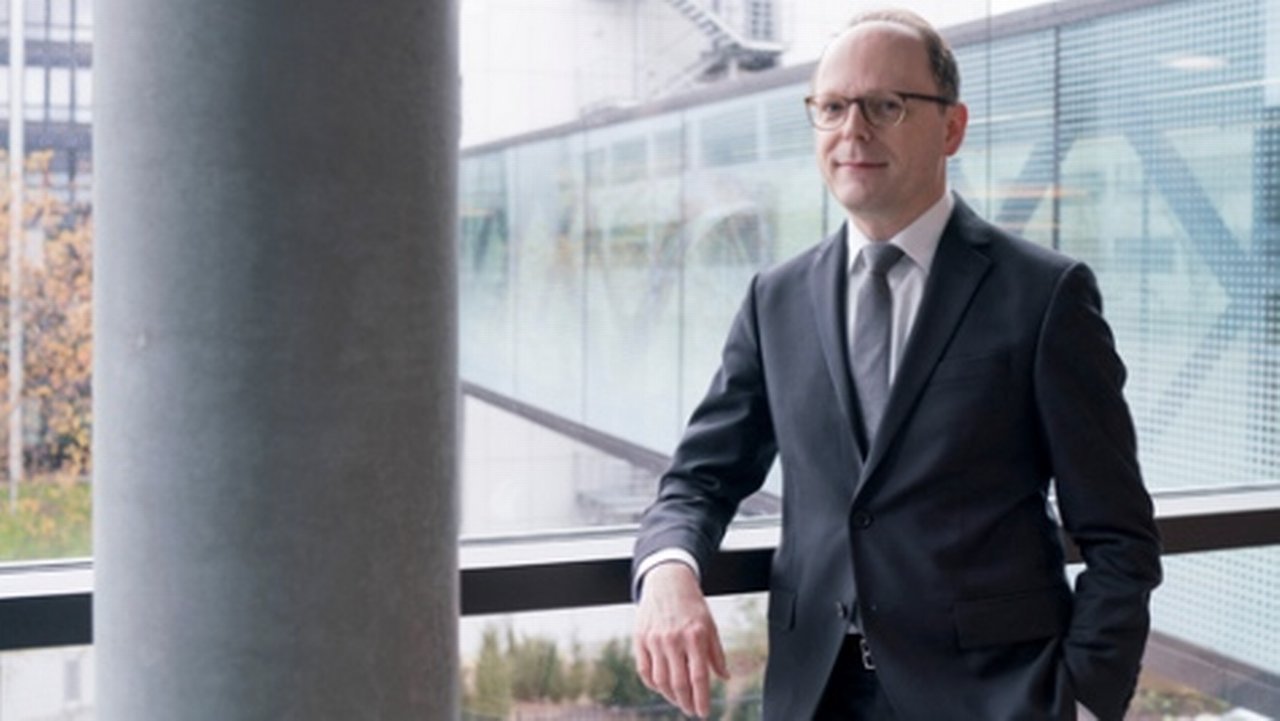October 2019
The mass affluent in China are turning to global stock markets, helped by online trading platforms such as Tiger Brokers. flow looks at how the fintech’s Deutsche Bank-sponsored American Depository Receipt programme is further fuelling these investors’ ambitions
China’s affluent middle class continues to grow, and they are seeking to invest more in global markets1. Driven by internet-centered lifestyles and influenced by their nation's technology platforms such as WeChat and Baidu, the mass affluent Chinese behavior is changing not only as consumers, but also as investors. Their investment appetite is spurred by the rise of mobile online trading and the growing interest among millennials to further balance their investment portfolios with securities.
Recent IPOs such as those of UP Fintech Holding Limited are capitalising on this trend. The company, also known as Tiger Brokers, was launched in 2014 as an online stock brokerage startup backed by Interactive Brokers Group Inc, Xiaomi Inc, ZhenFund and notable Wall Street investor Jim Rogers. As a rising star in the industry, the fintech company serves Chinese investors, enabling them to build their global portfolios.
Embedded in this strategy is the vision of Tiger’s management team members, who previously worked at banks and tech companies including Goldman Sachs Group, Inc, CME Group, Guosen Securities, NetEase Inc, Tencent Holdings Ltd, Baidu Inc, and Xiaomi Inc, to cater to Chinese investors’ needs for an easier, time-zone and language friendly way of accessing global markets in a quick and efficient manner. “Right now they are able to trade all major stock exchanges,” comments CFO John Zeng. “We enable them to trade stocks in Hong Kong, US, London and A-Shares through the Shanghai/Shenzhen Connect programs through our platform. Going forward we will add more exchanges, such as Singapore.”
This vision is made possible by Tiger’s differentiation as a tech-driven online broker with an asset management license. “We offer users a rich range of active and passive trading options, including, equities and options, as well as our own ETF. In the future we will add more securities products onto our platform and be the most active in the IPO space,” says Zeng.
A further component in Tiger’s capabilities are IPOs subscriptions, including US IPOs. “Most of the allocations in US IPOs go to the institutions. Since many of our clients are retail investors we want to be pioneering and be able to get our allocation and redistribute these shares to our retail investors, via our platform. We started to offer this model to Chinese investors in 2017 and we continue to actively grow this business.
Leap of faith
Given this capability, Tiger took a leap of faith in capital markets when it embarked on its own IPO journey over a year ago. This culminated in a listing – via an American Depository Receipt (ADR) programme with Deutsche Bank - in March 2019. The programme provides investors with access to the company through receipts available to buy through the programme. “A US listing enables us to provide regulators and investors with more transparency and credibility,” asserts Zeng. “Attracting more scrutiny does not phase us as we see it as helping us to be more innovative and to attract investors. A listing would also enable the company to expand into more locations and to use the stock to retain talent.”
So under the leadership of former bankers, including Zeng, who as a former ECM banker covered the Fintech sector and watched Tiger’s ascension, Tiger decided to test investors’ appetite. In his previous interactions with the investor universe, Zeng noted that investors were eager to see emerging Fintech companies coming out of China. “Traditionally, the companies coming out of China were more weighted towards the industrial and manufacturing sectors. Today, these companies include healthcare, which is a good trend for the Chinese economy and for the investor universe,” he noted. He also observes that investors are getting pickier and want to invest in companies with a clear vision and strategy to differentiate from competitors in this space.
This point of differentiation is also borne out by the fact that out of more than 500 employees at Tiger, more than half work in R&D. “Our company has a good mix of financial and tech DNA,” says Zeng. “Our country CEOs used to work in organisations such as Interactive Brokers and bulge bracket banks. This combination of tech and financial expertise helps us to grab market share very quickly, and also be in compliance with all the regulations.”
Come together
With this unique position in the market, Tiger set about an IPO with programme partners. “All parties, including Deutsche Bank, performed well and the combined team had good chemistry,” recalls Zeng. “They did a great job in helping us prepare for the IPO and enabled us to get a good window back in late February and March this year. And of course, the ADR programme itself has been very helpful too.”
As part of the programme, Tiger tested the waters with a roadshow in the US and subsequent meetings and calls with investors to gauge their appetite. “I think overall, this business model is not that difficult for them to understand, because the market has Interactive Brokers as well as companies such Charles Schwab, which are similar companies that operate at a much larger scale,” Zeng opines. “Where we differentiate ourselves is by offering IPO services and asset management as well as our ESOP program and focus on user experience. Tiger is unique and is focused on the global Chinese population. So overall, US investors are quite receptive to our IPO.”
Moving forward
Zeng also remains confident about the future performance of the company post-IPO. “As a broker dealer business, we are subject to the beta of the market. Post-IPO we saw the stock rise significantly, beyond my expectations. Following that, due to ongoing macro uncertainties – such as the trade war between China and the US - the stock price corrected itself. But in our view, as an asset manager, we are not too focused on short term performance, because we want to be able to execute and deliver good results for our investors in the next 12 months.
These results include post-IPO acquisitions such as those of US online brokerage service platform Marsco Investment in June 2019, which furnished Tiger with a license to self-clear trades2. In addition, recent acquisitions in Australia and a new capital markets services license in Singapore should fuel further growth.
"These are locations with a large Chinese population of investors who want to invest globally so we will keep expanding there"
Similarly, new markets require Tiger to comply with more regulations and to manage its liquidity efficiently. “Each jurisdiction has some capital reserve requirements, which affect how we set up company structures, how much capital we hold and how many accounts we have under each broker dealer licence,” notes Zeng. “Regulations for Chinese fintech companies are pretty strict but, by being compliant, we are able to attract more customers in this market.”
Attracting more customers will be on Tiger’s cards for the next 12 months and the ADR programme will be a central tenet of this aim. In addition, Tiger will offer corporate customers accounts by engaging Deutsche Bank in Singapore. This offering rounds out its offering to retail investors, with about 20-25% of its business coming from small institutions. And in considering further acquisitions, Zeng maintains that it will continue to work with Deutsche Bank’s Corporate Bank, which includes the Depository Receipts business and the research team.
He concludes: “Even though we are listed, we are a young company with only five years of history so there is a long way to go. We look forward to working with Deutsche Bank as we continue to expand so hopefully it's going to be a long term and fruitful relationship for both of us.”
Go to Corporate Bank EXPLORE MORE
Find out more about products and services
Go to Corporate Bank Go to Corporate BankStay up-to-date with
Sign-up flow newsbites
Choose your preferred banking topics and we will send you updated emails based on your selection
Sign-up Sign-upSubscribe Subscribe to our magazine
flow magazine is published annually and can be read online and delivered to your door in print
You might be interested in
TRUST AND AGENCY SERVICES
Digital mortgages come of age Digital mortgages come of age
flow’s Janet Du Chenne assesses how the pandemic and structural changes in the US residential mortgage industry have accelerated the shift from a manual, paper-oriented and in-person set of practices to a process that utilises digital technologies
TRUST AND AGENCY SERVICES
European structured finance remains resilient European structured finance remains resilient
Securitisations are going through a volatile period, but markets have begun to stabilise. flow reflects on recent Global ABS and Creditflux discussions and examines Deutsche Bank Research findings to assess the major trends impacting the securitisation markets and the outlook
TRUST AND AGENCY SERVICES {icon-book}
Investor Harmony Investor Harmony
How did Germany’s SAP successfully orchestrate change from a one-product software vendor to a fast-growing cloud business? flow’s Janet Du Chenne talks to Stefan Gruber about the company’s transformation and how investor relations adapted



